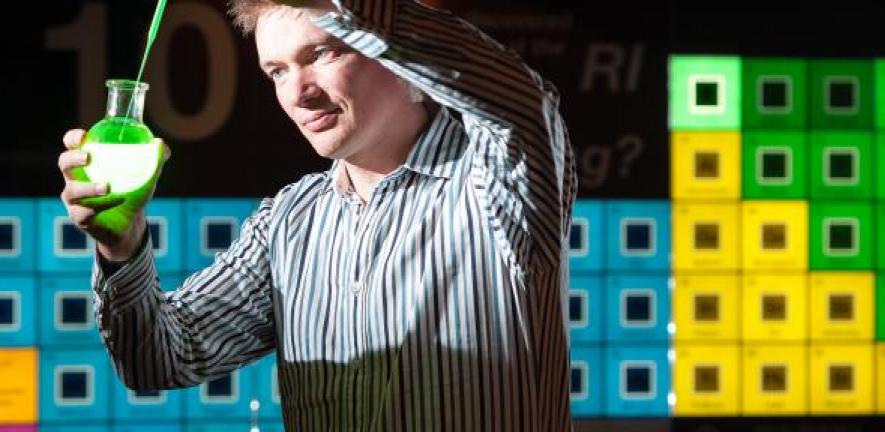
"Would an alien have a periodic table? I think they probably would," Dr Wothers told the BBC. "It is something that is absolutely fundamental – this is not just some creation of humans, there is something innate and fundamental to this – there's chemical law, physical law behind this."
In March 2019, it will be 150 years since the Russian scientist Dmitri Mendeleev took all of the known chemical elements and arranged them into his Periodic Table.
Dr Wothers, an enthusiast for the history of chemistry, will be marking this anniversary with a special (and explosive!) public lecture called Table Talk. He'll be giving the lecture during our annual Chemistry Open Day on Saturday 16th March. This takes place as part of the University of Cambridge Science Festival.
In his talk, Dr Wothers will explore how the iconic arrangement of elements in Mendeleev's Table came about, what the Table means and how it works.
From its earliest beginnings, he'll explain why several different arrangements of chemical elements all appeared around the same time 150 years ago. And he'll investigate how atomic structure gives rise to the diverse range of chemical properties, from metals that explode in water, to elements that enable things to burn.
The lecture wil incorporate some exciting new demonstrations, and with help from the audience we'll find out why our saucepans should be out of diamond, and where to find bags of separate atoms.
Dr Wothers' Open Day lectures are always extremely popular. They are free to attend, but booking is essential. (Booking opens on Monday 11th February at 9:00 am.)
You can see the video about last year's Chemistry Open Day here:
The Periodic Table has developed and grown since Mendeleev's initial arrangement. There are now 118 elements on it. (The four most recently discovered were officially added to it in 2015, completing the seventh period of the Table.)
The chemical elements are laid out in the Table in order of increasing atomic number. There are repeating patterns in the properties of the elements, and elements with similar properties are arranged to form columns (groups). In its current form the Periodic Table is now a thing of both beauty and practical use, as Dr Wothers told the BBC.
"You can understand certain things just by considering the place of an element in this table, or in this arrangement. That's why it's so useful to chemists," he says.
"This year, I think we are very privileged because the Periodic Table is in its most perfect form and probably the most perfect form it will ever be in."
Scientists are currently working on synthesising heavier elements, and, if they manage the task, the Table will change yet again. "As soon as just one more is discovered, then we'll have to start a row – the eighth period," he says. "And then it will lose some of its beauty."

